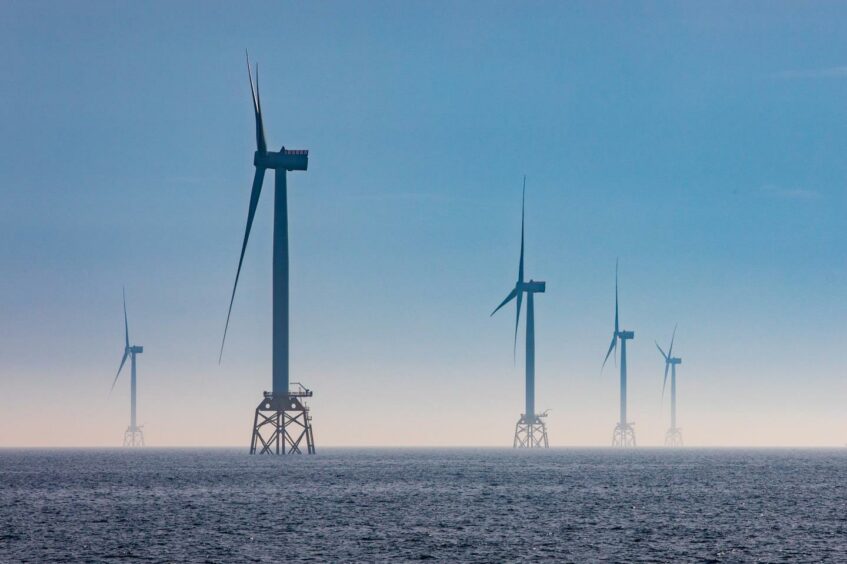
Industry chiefs set out how government support for offshore wind could be improved during the opening day of a key renewables event in Glasgow.
Hundreds of people gathered at the SEC Centre on the banks of the River Clyde on Tuesday morning for the start of Scottish Renewables’ Offshore Wind Conference.
Michael Matheson, Scotland’s secretary for net zero and energy, kicked off the event with a keynote speech.
He reflected on how the recent ScotWind round will drive decarbonisation north of the border and called on developers to deliver on the supply chain pledges.
His speech was followed by a panel discussion featuring representatives from Scottish Government, Crown Estate Scotland and Highlands and Islands Enterprise.
A key point of discussion was the UK Government Contracts for Difference (CfD) scheme.
The mechanism, which protects investors from volatile energy prices, has received widespread praise for playing an instrumental part in bringing down the cost of offshore wind.
It is not without criticism though and some feel it pushes developers to prioritise minimising project costs, meaning local content is overlooked.
From next year Westminster will hold annual CfD bidding rounds, a move that has been welcomed by industry.
But government has been encouraged to focus on ensuring that projects that want contracts can secure them, rather competition between developers.
Jamie Maxton, head of external relations at SSE Renewables, said: “We’re already working in a sector where prices have come down incredibly quickly, much quicker than I think any of us anticipated, to the point where we’re developing projects below the wholesale price most of the time.
“We should be making sure that projects aren’t losing out unnecessarily from a CfD process which is going for competition for competitions sake, when that’s not really necessary.
“I do understand that any suggestion at all that you might not be getting the lowest price possible for the consumer at the current time is difficult, but equally we need to recognise how important the acceleration of our industry is as part of the solution to that problem.”
There is a key focus in the UK at the moment on establishing a world-leading domestic renewables supply chain, particularly for floating offshore wind.
But there are concerns that if the cost of floating turbines falls too rapidly, then the market could become unstable and the supply chain may not materialise fully.
Mr Maxton added: “On floating in particular, we do now need, particularly given the ScotWind result, to look at the current target of 1 gigawatt (GW) by 2030 and significantly increasing it, probably to 5 GW.
“Then we need to look at the support mechanisms as well. The CfD is very effective, but does floating need that in combination with something else, such as grant support.”
Recommended for you

